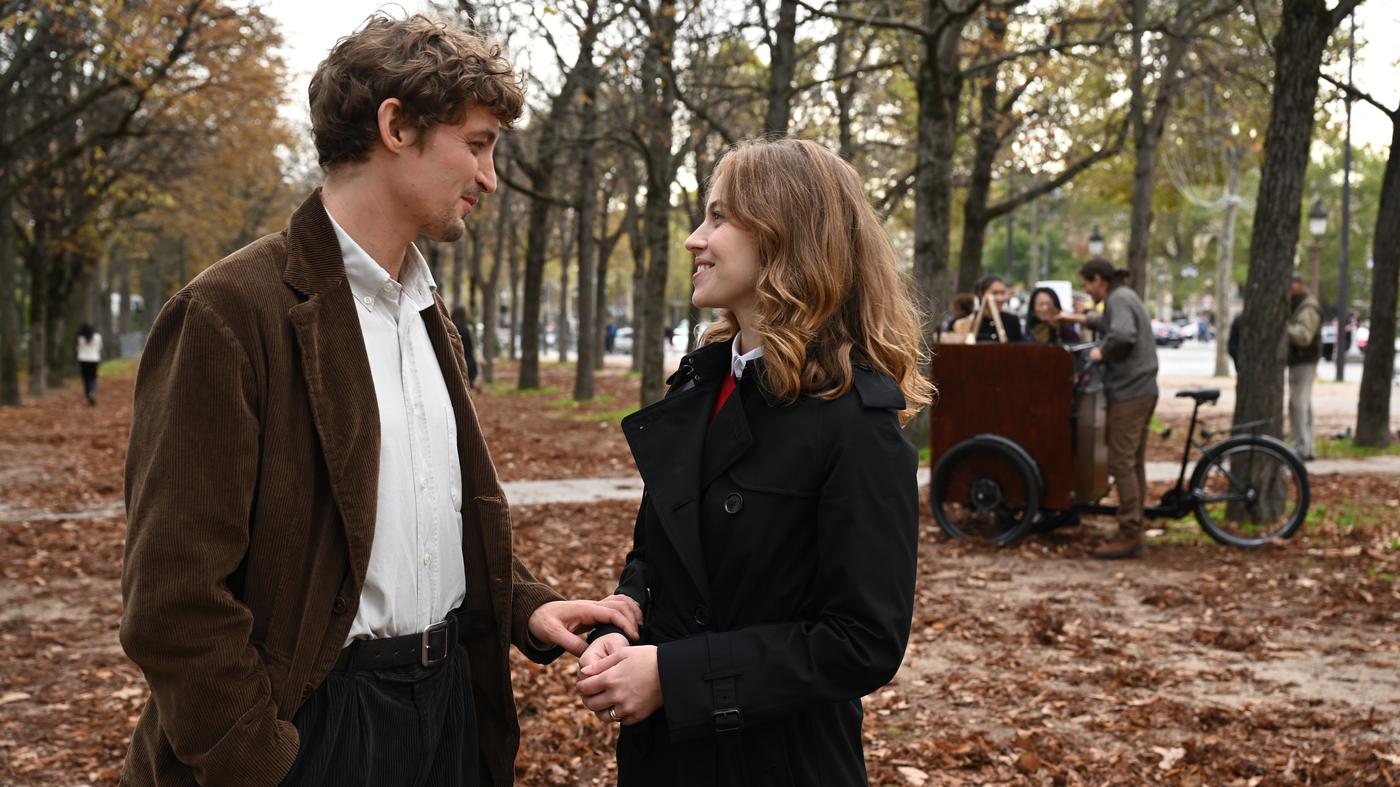It is probably indicative of the current state of Woody Allen’s career that the release of his 50th feature film is only being considered by many critics from the perspective of being a chronicler.
It is fitting that the 88-year-old director stated in an interview just a few days ago that his current film “The Stroke of Luck” could well be his last. He simply has the “fire” („romance“) has been lost for filmmaking, and distribution of films has become increasingly difficult.
Part of the truth is, of course, that Allen’s films have no longer found their regular way into cinemas in America since the allegations of sexual abuse against his then seven-year-old daughter Dylan resurfaced. In 2019, Amazon Studio withdrew “A Rainy Day in New York,” and it is now considered persona non grata in the US industry.
Well-known Hollywood stars distance themselves from him. The cooled passions are therefore based on mutuality, which incidentally also has a lot to do with the quality of the late work.
However, Woody Allen can’t complain about a lack of attention. His film “A Stroke of Luck” was shown last summer in Venice, where people are still in defense mode of the disgraced Old Masters; Roman Polanski’s super-rich film “The Palace” was also shown here.
But if there is one thing to give Allen credit for, it is that, unlike Polanski’s, his bitterness does not express itself in the form of insults to the audience – or insults to the intelligence of his most stubborn fans.
I agree that the external content can be displayed to me. This means that personal data can be transmitted to third-party platforms. You can find more information about this in the data protection settings. You can find these at the bottom of our page in the footer, so you can manage or revoke your settings at any time.
“A stroke of luck” was waved through by American critics without any problems; perhaps also an indication that the preoccupation with the attractive figure Woody Allen is already entering a phase of normalization again. “Zeit Magazin” has just published a humorous interview by Oliver Polak with Allen – Jewish humorists among themselves.
For “A Stroke of Luck” (the French title “Coup de Chance” means more of a streak of luck) Allen at least dusted off some of the better old ideas that “Crime and Other Trifles” (1989) and “Match Point” (2005) were among his up to date made the most evil films today – but always on the verge of morality. This time the Canadian Niels Schneider takes on the role of Allen’s alter ego.
Allen’s second European phase
His penniless writer Alain accidentally meets his secret childhood love Fanny (Lou de Laâge) again on the streets of Paris, whom he ensnares with a transgressive verve that only Woody Allen could find romantic.
Unfortunately, Fanny is more or less happily married to the dubious investment advisor Jean (Melvil Poupaud), who has at least one corpse in the closet – and presents his young wife like a trophy at high society parties.
What begins as a rather unlikely love story soon takes a turn towards a crime film – which, however, is less interested in solving a crime than in darkening the human condition.
When Alain disappears in a similarly dubious manner as Jean’s former business partner, this brings Fanny’s mother Camille (Valérie Lemercier) to the scene, who is taken in by her son-in-law’s shark-like charm, but still carries out her own investigation.
© Thierry Valletoux
You can tell that Allen’s passion for filmmaking has faded from how mechanically he narrates this plot. In contrast to his first “European phase” in the mid-2000s, in “A Stroke of Luck” he no longer shows any interest in local color.
Cinematographer Vittorio Storaro’s images of Paris are flat and lit for television, but the insights into the habits of the Parisian upper class, who spend their weekends on hunting trips, lack Allen’s keen powers of observation. And any consideration of the characters’ unpredictable paths of fate remains a strange assertion in a film whose story is so constructed.
However, Melvil Poupaud and Lou de Laâge, perhaps freed from the scrutiny of film critics who viewed Allen’s most recent works with mildness, play their very different roles with an uninhibited ease. He: always on the verge of caricature – for example when Jean stands proudly in front of his model train.
She: with undisguised naivety as she naively plunges into a romance that, in a Woody Allen film, can of course only have an unhappy ending. It would be an irony worthy of all if this work ended with a corpse in a forest near Paris, far from its natural habitat of New York.
